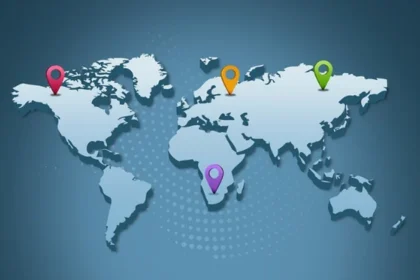The culinary world is adapting to the digital era, and as with many educational disciplines, cooking schools are taking their expertise online. Aspiring chefs no longer need to conform to the rigid schedules of traditional culinary institutes. Online culinary schools offer innovative platforms for mastering the art of cooking from the comfort of one’s kitchen. From honing knife skills to exploring global cuisines, online culinary courses provide an array of learning possibilities. Below, we delve into the benefits and opportunities that come with choosing an online culinary school.
Embracing Flexibility and Convenience With Online Culinary Schools
The most apparent advantage of online culinary schools is the flexibility they offer. Students can fit their cooking lessons around their existing schedules, making it easier to balance work, family, and education. This flexible approach allows for a more personalized learning experience, enabling budding chefs to learn at their own pace.
Convenience is another key benefit. Without the need to commute, individuals save time and money and can easily access course materials from anywhere with an internet connection. This accessibility makes culinary education more inclusive, available to individuals who may not live near a cooking school or have mobility constraints.
Online courses also mean that the classroom is open 24/7, providing students the opportunity to review materials and practice techniques anytime. This round-the-clock access fosters an environment where learning is never interrupted and inspiration can be seized at any moment.
The Cost-Effective Nature of Online Culinary Education
Financial considerations are a significant factor in education, and online culinary schools often present a more affordable alternative to traditional institutions. Without the overhead costs associated with maintaining a physical campus, online schools can offer courses at a reduced rate.
Additionally, students save on ancillary costs such as transportation, housing, and dining, which can quickly add up when attending a brick-and-mortar school. By learning from home, students can prepare their practice dishes with ingredients they already have, further reducing expenses.
Online programs may also offer various pricing structures, including subscription models or payment plans that can ease the financial burden. This can open doors to those who might otherwise find culinary education to be prohibitively expensive.
Interactive Technology and Real-Time Feedback in Remote Cooking Classes
The rise of interactive technology has revolutionized online culinary education. Live demonstrations, virtual reality (VR), and augmented reality (AR) experiences offer immersive learning environments that rival in-person classrooms. Through these advances, students can witness techniques in detail and from multiple angles.
Real-time feedback is also a cornerstone of these online programs. Video conferencing tools enable instructors to provide immediate guidance and corrections, ensuring that students learn the correct methods from the outset. This personal touch helps build confidence and competence in students’ culinary abilities.
Peer interactions enrich the learning experience further. Online platforms facilitate collaboration and discussion among students, allowing them to share experiences, recipes, and advice. This sense of community fosters a supportive learning atmosphere, even in a remote setting.
Continuous assessment tools embedded in online courses also allow students to track their progress and identify areas for improvement. This feedback loop is crucial for developing a refined skill set in the culinary arts.
Expanding Culinary Horizons: Diverse Cuisines and Techniques at Your Fingertips
Online culinary schools break geographical barriers, offering courses that cover a wide range of cuisines and cooking techniques from around the world. This global perspective enriches the learning experience, exposing students to a diversity of culinary traditions and practices they might not encounter locally.
With specialized courses tailored to different interests, online students can deep dive into areas such as pastry arts, food entrepreneurship, or specific regional cuisines. The breadth of options enables students to cultivate a niche or build a well-rounded repertoire of skills.
Moreover, the asynchronous nature of many online courses allows for the inclusion of guest instructors and experts from across the globe, further enhancing the learning experience. These encounters provide unique insights into various culinary scenes and foster appreciation for global gastronomy.
The ability to instantly access a wealth of resources and tutorials expands the learners’ culinary toolkit. Online students can refine their craft by learning from some of the world’s most renowned chefs without needing to travel or pay for expensive workshops.
The evolution of cooking education into the digital space has made the culinary arts more accessible, interactive, and comprehensive than ever before. Embracing an online culinary school translates to endless possibilities for aspiring chefs, from saving on costs and enjoying flexibility to building invaluable industry connections. With these advantages, the future of culinary education is promising and beckons all food enthusiasts to explore its potential.










